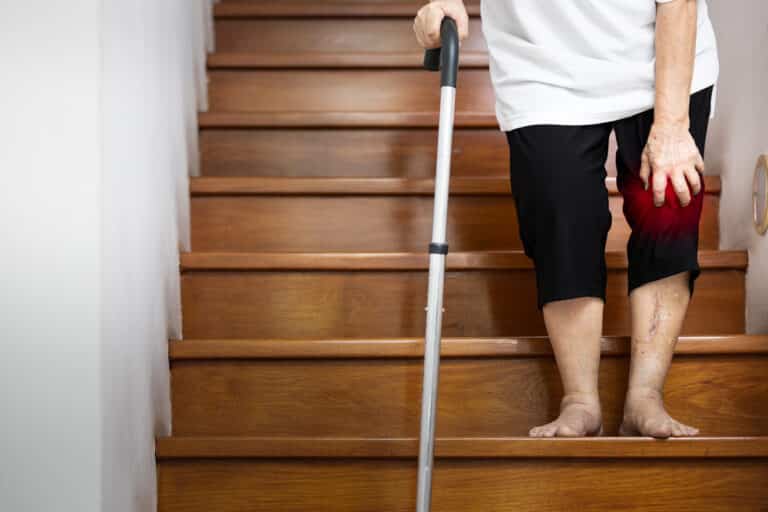With age, we become wiser. Our many life experiences help us to navigate this world with greater understanding, fostering the ability to make better decisions than we did when we were younger. Unfortunately, with age, we also generally endure diminished strength and everyday aches and pains. Arthritis is often the culprit. Although the condition creates inflammation or swelling in various joints, it can be particularly troublesome in the knees.
BoneAndJointCanada.com reports that there are more than 4.6 million Canadians living with osteoarthritis (OA) which is the most common type of arthritis. This number is expected to rise over the next three decades to more than 10 million. That would pretty much mean that one in every four Canadians will suffer from OA.
The hallmark of knee arthritis is pain and stiffness in the affected joints.
Seniors with knee arthritis often experience sharp, aching pain when moving their knees, especially when bearing weight. This pain can make it challenging to walk or stand for extended periods. Stiffness in the knees can also make it difficult to bend the knees fully, further restricting mobility.
“Knee arthritis is the inflammation of the joints in your knee, which causes pain and stiffness, ultimately leading to mobility problems,” informs Michigan’s Beaumont Health, “Severe knee arthritis can make it difficult to walk, sit comfortably, or do other daily tasks.”
Knee arthritis can lead to a reduced range of motion.
Naturally, this makes it difficult for seniors to perform everyday activities. Bending the knees to sit down, stand up or reach for items on the ground becomes more challenging. This limitation in movement can be frustrating and discouraging for seniors, as it may lead to a loss of independence.
The combination of pain and a reduced range of motion can often result in muscle weakness around the knees. This muscle weakness can exacerbate mobility issues for seniors with knee arthritis. Weaker muscles are less effective in supporting the knee joint, making it harder to maintain balance and stability. The loss of muscle strength can further reduce the ability to engage in physical activities and may lead to a more sedentary lifestyle.
Knee arthritis can have social and emotional implications.
A sedentary lifestyle is a common result when a person endures joint pain. Many seniors feel reluctant to engage in social activities or leave their homes due to pain and mobility issues. Social isolation can lead to feelings of loneliness and depression, further diminishing their overall well-being.
It’s important to remember that maintaining independence is a significant concern for seniors. Knee arthritis can limit the ability to perform essential daily activities, such as grocery shopping, cooking, cleaning and even maintaining personal hygiene. Many seniors may require assistance, which can be emotionally challenging and lead to a sense of loss of control over their lives.
A stair lift is a sound solution for those with knee arthritis.
Last week, we were contacted by a Scarborough family who shared concerns about the knee arthritis experienced by its matriarch. She had recently slipped on the second to last step of her home’s main staircase. After a free in-home consultation, she decided to have a Handicare Stair Lift installed. Designed for ease of use and comfort, this stair lift will ensure that she never experiences another fall on her stairs again!
To learn all about the stair lifts offered by LifeCare Mobility Solutions, please don’t hesitate to call us at 416-267-9800 or email us at info@lifecaremobility.ca. You may also contact us by filling out the form on our Contact page!










